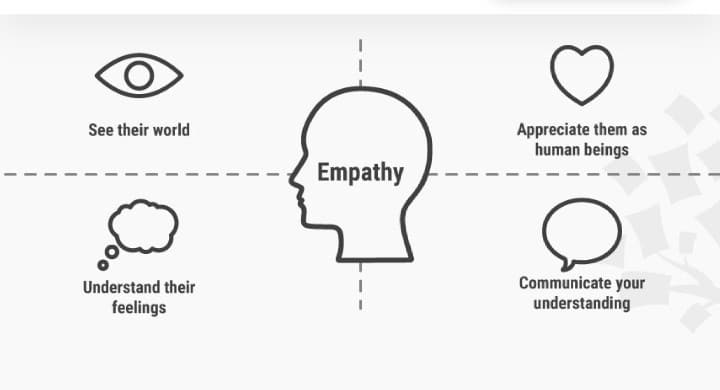The qualities and behaviors that enable you to handle client demands and promote a positive experience are known as customer service skills. In general, communication and problem-solving are key components of good customer service abilities. Customer service skills, which include abilities like active listening and reading both verbal and nonverbal clues, are frequently referred to as “soft skills.” In this post, we will be looking into some key customer service skills to have and to add to your resume, with the possible interview questions to look out for.
Customer Service Skills
Both a job type and a set of occupational skills are included in customer service. As part of their duties, customer service representatives must attend to the needs of customers and provide a positive experience. Customer service requires a variety of skills, including active listening, empathy, problem-solving, and communication. At every level, there are several vocations that require customer service. Although you might typically think of customer care as a service provided by a business to a customer, it can also be used within a business.
Why is Good Customer Service Essential?
The human face of the organization is often represented by those performing customer service tasks or employing customer service abilities. Many companies depend on staff members who can engage clients in constructive conversation, fostering loyalty and a positive reputation. If you work in customer service, which is widespread in sectors like food and beverage or retail, you might attribute a significant portion of your success to your capacity to give clients satisfying experiences. You can improve in your position by learning and developing the qualities that constitute a successful customer service worker, combined with on-the-job experience.
Tips for Enhancing Your Customer Service Abilities
Anybody who works to develop their customer service abilities will gain. Having strong communication skills, empathy, and active listening skills, for instance, will make you a better employee and colleague all around. The following suggestions will help you hone your customer service abilities:
Ask for direct feedback from customers: Ask clients for input on the service at regular intervals, such as quarterly or yearly. Maintain a record of your criticism, and consider it after every new round to gauge your progress.
Ask a boss for their opinion: If you communicate with customers primarily through email or other digital channels, it could be beneficial to share or print out your correspondence for your management so they can see your accomplishments and areas that need work.
Browse customer satisfaction surveys: If your employer offers service feedback forms to consumers, review them while you have the chance. You can obtain a different impression of your present customer service skills from reviewing client feedback than you would from management or other employees.
Develop new abilities: On the job and off, you can work on traits like patience and kindness with clients and coworkers alike. You might discover that becoming more knowledgeable about the services or goods your firm provides enhances your capacity to deal with consumer complaints.
Key Customer Service Skills List
Although providing excellent customer service is frequently considered a skill in and of itself, there are other related skills that support this ability. Key customer service skills include:
- Active listening
- Adaptability
- Collaboration
- Creativity
- Creativity thinking
- Effective communication
- Empathy
- Friendliness
- Emotional office
- Patience
- Persuasion
- Time management
- Negotiation skills
Let us look at the skills above
#1. Empathy
Without empathy, a list of useful customer service abilities is incomplete. The capacity to comprehend another person’s emotions and viewpoint is known as empathy. What makes empathy a crucial serviceability? Think about the fact that 70% of purchasing decisions are influenced by the way the customer believes they are being handled. It’s not about whether the issue was resolved, whether reimbursement was given, or how much time was spent, at least not totally or even mostly.
#2. Adaptability
Your days are never precisely the same when you interact with the public every day. Not all people are the same. This implies that you’ll receive questions via phone, email, social media, and sometimes even in person—often from the same clients. Because a strong CRM integrates ticket sources and makes customer information accessible regardless of the channel you’re using, it can, fortunately, handle this difficulty.
#3. Communication Skills
You’d be amazed at how many customers find it difficult to interact with their customer support person, despite the fact that this may seem obvious. Several unsatisfactory customer encounters can be attributed to mumbling, losing focus, or utilizing confusing language. Your agents may be the most sympathetic, competent, and upbeat individuals in the industry, but they also need to be effective communicators with clients. Make a commitment to training every member of your customer service team and hire effective communicators.
#4. Effective Listening
A little additional training will help all of your agents perform their duties more effectively, and a simple place to start is by instructing your personnel in good listening techniques. More than just turning up the volume on a headset is involved in good listening abilities. It involves taking the time to fully comprehend a customer’s problem and then demonstrating your interest in them.
#5. Taking Responsibility
Just because you fix a customer’s problem doesn’t guarantee that they’ll stay with you, but how you fix a problem is just as crucial as offering a solution. The most important thing is to be in charge of the client’s care. How many of your customer care representatives are actually the root of the problem at hand? Although they are on the front lines of client satisfaction. hardly any.
#6. Problem-Solving
To provide good customer service, one must be able to resolve issues. The employee must determine the cause of the issue and how to resolve it if a client approaches the company with a problem or complaint. You may need to be understanding and patient as they explain the issue in order to solve it. To assist the client in resolving the problem and assisting them in preventing it in the future, you should have the necessary technical knowledge.
#7. Resourcefulness
A helpful customer service talent for fixing issues is resourcefulness. By finding creative and efficient solutions, you can spend less time with each customer and assist more people in a single day. It necessitates being knowledgeable about various corporate divisions and, if necessary, introducing clients.
Key Customer Service Skills on Resume
It’s crucial to customize your resume for each position you apply for. This is due to the widespread use of applicant tracking systems (ATS) by businesses to automatically parse applications and eliminate prospects. Reviewing job descriptions, figuring out the phrases used to define the perfect candidate, and finding ways to incorporate such phrases into your CV is frequently necessary to get past an ATS.
The following skills are typically crucial to a customer service job and are generally key to worth emphasizing on your resume along with your professional experience and credentials.
#1. Communication
To answer a customer’s inquiries or address an issue while maintaining a positive impression of the business, effective communication is crucial. It’s crucial that you communicate properly both orally and in writing, offering solutions that are beneficial. With effective communication abilities, you can establish a connection and a sense of trust with ease.
#2. Active Listening
Your capacity for hearing can enhance your capacity for speaking. Active listening is listening to completely understand rather than just listening to react. While interacting with customers, it’s crucial to pay attention to what they have to say, empathetically reply, and ask questions to better comprehend the situation.
#3. Empathy
Successful customer service professionals frequently possess empathy as a social competency. Strong customer service includes demonstrating to a client that you comprehend their circumstance and identify with their feelings. Empathy frequently entails approaching your customer’s problems from their perspective and establishing a foundation of love, patience, and respect as you begin working with them.
#4. Comfort
Being personable in service—or, in other words, connecting with your customer—is one of the excellent skills to highlight on your resume because people want to feel like they are communicating with someone who actually cares about their needs. Customer service interactions may be more successful if clients believe they can trust you to assist them.
#5. Problem-Solving
When they are having an issue, customers frequently contact customer service professionals. It helps to be able to analyze consumer concerns critically and come up with original answers. A common approach to problem-solving is to pay attention to the demands of the client, identify the root of the problem, and then address it using the goods or services offered by your business.
#6. Time Management
Each customer care exchange won’t last exactly the same amount of time. But if phone volumes increase or long lineups form at a store, it’s critical to effectively manage both your customers and your own time. It’s important to control your time and know when to move on while remaining professional and respectful because it might be easy to lose track of time while you’re developing rapport.
#7. Stress Management
Working in customer service can be unpleasant in part because of the possibility of receiving angry or unhappy clients. It’s critical for customer service agents to be able to separate their personal feelings from those of their clients. Customer service employees with strong stress management abilities can control their emotions and tackle customer difficulties with a positive attitude.
#8. Product Competence
Any customer service position requires a strong understanding of your company’s goods and services. Smoother customer interactions and better customer service can result from spending time regularly becoming familiar with your business’s offers and having current product knowledge.
#9. Customer Relationship Management
Customer relationship management (CRM) databases are used by customer care representatives to swiftly retrieve information and record client interactions. Also, customer service positions frequently place a strong emphasis on workplace competencies, but many hiring managers also look for technological knowledge, such as CRM experience.
Key Customer Service Skills Interview Questions
Reviewing frequently asked questions and answers in advance of a customer service job interview might be useful if you want to get a sense of what to expect. To help you be ready for your upcoming skills interview, go over this key list of customer service questions.
#1. What is Customer Service?
Your definition of customer service may be the first set of key questions the hiring manager asks you during the skills interview. They are interested in learning your perspective on the job and the client. Instead of using a stock response or a definition from a dictionary, try to be specific in your response and use language that is representative of your own thinking.
#2. How Can You Improve a Dissatisfied Customer’s Experience?
A customer care representative’s many duties include responding to complaints from dissatisfied clients. The hiring manager will want to confirm that you possess the abilities and tact necessary to properly handle these circumstances. You can make reference to previous work-related problem-solving experience in your response if you have any.
#3. Describe a Time you Collaborated With a Peer to Solve a Problem
A role in customer service frequently hinges on effective teamwork. The hiring manager will want to know that you’re able to effectively communicate with people and that you enjoy working in teams. When you give your anecdote, be sure to make it obvious what the issue is, what you plan to do about it, and how your coworker contributed.
#4. What Skills Should a Great Customer Service Representative Have?
Hiring managers are interested in ensuring that you are aware of the demands of the role and that you have the necessary abilities to carry them out successfully. Use the skills and requirements given in the job description in your response, and whenever you can, relate them to your own abilities.
#5. What Function Does Empathy Have in Providing Customer Service?
The majority of customer service jobs demand a lot of empathy. You can better address the needs of the consumer if you comprehend and value their viewpoint. Hiring managers are interested in making sure you comprehend the significance of this expertise and know how to use it. Describe how, particularly, empathy aids a customer service agent in doing their duties in your response.
#6. What are You Intending to Do in Five Years?
Hiring supervisors are interested in learning about your professional goals. The employer may be seeking someone who intends to stick with the company and advance through the ranks, depending on the particulars of the role and the organization. As you respond, be truthful about your development and consider how this job will further your professional objectives.
#7. What Would You Do If You Knew a Customer Was in the Wrong?
Customers occasionally could provide false information. You need to treat this sensitively when it happens. Hiring managers want to know that you can handle customer miscommunications and difficulties effectively. If you have one, use it in your response as an example from real life.
#8. What Would You Do If You Didn’t Know How to Help a Customer?
A customer’s issue could occasionally fall outside of your purview. To make sure you can satisfy the needs of the customer, hiring managers want to see that you are familiar with the organizational structure of the business and have a strong grasp of on-the-spot problem-solving. If you can, speak directly to the company’s employee organization.
#9. What Would Your Former Coworkers or Classmates Say About You?
Customer service professionals are constantly in contact with clients, so they need to be able to communicate effectively and maintain a cheerful attitude. In your response, use words that describe you in a way that is consistent with the abilities required of a customer service representative.
#10. Do You Have any Experience Using Customer Service Software?
The hiring manager might anticipate you to work on customer service software depending on the details of your customer service function. Any experience you have? Please describe. If you have no prior experience working with a particular program, talk about your aptitude for learning and willingness to get instruction.
#11. Your Motivation for Wanting to Work in Customer Service.
The hiring manager wants to know that you take the position seriously and appreciate your duties. When you respond, be sincere about the reasons you desire to work in the role.
#12. What Do You Think of the Goods and Services Offered by Our Company?
This question may be requested of you to show that you have done some study about the company’s operations and products. Before your interview, you must learn as much as you can about the company. Describe the good or service in your response before frankly stating why you enjoy it.
What Are the 7 Qualities of Good Customer Service?
Qualities of good customer service:
- Active listening
- Adaptability
- Collaboration
- Creativity
- Creativity thinking
- Effective communication
- Empathic
What are the 5 Qualities of Customer Service?
Look for these customer service abilities, attributes, and competencies in applicants while conducting interviews. Seek a communicator who can persuade others, and who is kind, patient, conscientious, and devoted.
What Are the 4 Basics of Customer Service?
Good customer service adheres to four main principles: it is proactive, professional, and individualized. The impact of these variables on the client experience is greatest.
Related Posts
- Examples of empathy: 45+ Examples with empathy statements
- Problem Solving Skills: Examples on How to Demonstrate them
- CUSTOMER CONNECT: Meaning & What You Should Know
- HOW TO BE A GOOD MANAGER: Effective Steps to Take To Become a Good Manager
- EMPATHY: Lack of empathy signs and how to develop it






